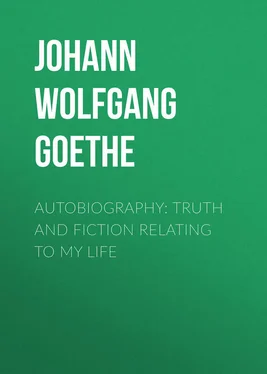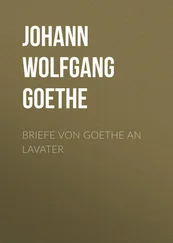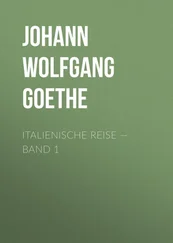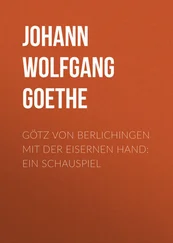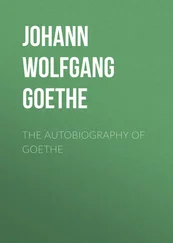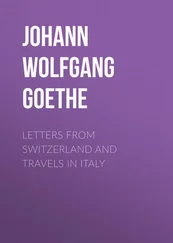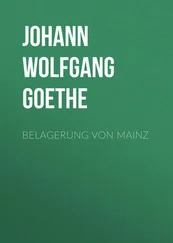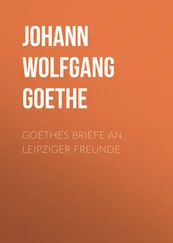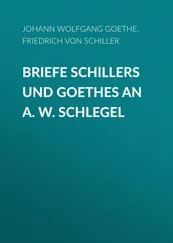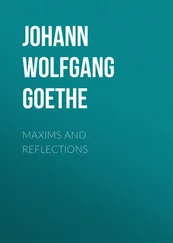Johann von Goethe - Autobiography - Truth and Fiction Relating to My Life
Здесь есть возможность читать онлайн «Johann von Goethe - Autobiography - Truth and Fiction Relating to My Life» — ознакомительный отрывок электронной книги совершенно бесплатно, а после прочтения отрывка купить полную версию. В некоторых случаях можно слушать аудио, скачать через торрент в формате fb2 и присутствует краткое содержание. Жанр: foreign_antique, foreign_prose, на английском языке. Описание произведения, (предисловие) а так же отзывы посетителей доступны на портале библиотеки ЛибКат.
- Название:Autobiography: Truth and Fiction Relating to My Life
- Автор:
- Жанр:
- Год:неизвестен
- ISBN:нет данных
- Рейтинг книги:5 / 5. Голосов: 1
-
Избранное:Добавить в избранное
- Отзывы:
-
Ваша оценка:
- 100
- 1
- 2
- 3
- 4
- 5
Autobiography: Truth and Fiction Relating to My Life: краткое содержание, описание и аннотация
Предлагаем к чтению аннотацию, описание, краткое содержание или предисловие (зависит от того, что написал сам автор книги «Autobiography: Truth and Fiction Relating to My Life»). Если вы не нашли необходимую информацию о книге — напишите в комментариях, мы постараемся отыскать её.
Autobiography: Truth and Fiction Relating to My Life — читать онлайн ознакомительный отрывок
Ниже представлен текст книги, разбитый по страницам. Система сохранения места последней прочитанной страницы, позволяет с удобством читать онлайн бесплатно книгу «Autobiography: Truth and Fiction Relating to My Life», без необходимости каждый раз заново искать на чём Вы остановились. Поставьте закладку, и сможете в любой момент перейти на страницу, на которой закончили чтение.
Интервал:
Закладка:
Johann Wolfgang von Goethe was born in Frankfort on August 28, 1749. His parents were citizens of that imperial town, and Wolfgang was their only son. His father was born on July 31, 1710. He married, on August 20, 1748, at the age of thirty-eight, Catherine Elizabeth Textor. In December, 1750, was born a daughter, Cornelia, who remained until her death, at the age of twenty-seven, her brother's most intimate friend. She was married in 1773 to John George Schlosser. Goethe's education was irregular. French culture gave at this time the prevailing tone to Europe. Goethe could not have escaped its influence, and he was destined to fall under it in a special manner. In the Seven Years' War, which was now raging, France took the side of the empire against Frederick the Great. Frankfort was full of French soldiers, and a certain Comte Thorane, who was quartered in Goethe's house, had an important influence on the boy.
Goethe, if we may believe his autobiography, experienced his first love about the age of fifteen in the person of Gretchen, whom some have supposed to be the daughter of an innkeeper at Offenbach. He worshipped her as Dante worshipped Beatrice.
In the autumn of 1765 Goethe traveled to Leipsic. On the 19th of October he was admitted as a student. He was sent to Leipsic to study law, in order that he might return to Frankfort fitted for the regular course of municipal distinction. He intended to devote himself not to law, but to belles lettres. He attended Gellert's lectures on literature, and even joined his private class. His real university education was derived from intercourse with his friends. First among these was J. G. Schlosser, who afterwards married his sister. He had a great influence upon him, chiefly in introducing him to a wider circle of German, French, English and Italian poetry.
But the person who had the strongest effect on Goethe's mental development was Adam Frederick Oeser, at this time director of the academy of arts in Leipsic.
Goethe, from his earliest years, was never without a passion, and at Leipsic his passion was Kitty Schönkopf, the Aennchen of the autobiography, the daughter of the host at whose house he dined. She often teased him with her inconstant ways, and to this experience is due his first drama, "Die Laune des Verliebten," "Lovers' Quarrels," as it may be styled. A deeper chord is struck in "Die Mitschuldigen" (The Fellow Sinners), which forms a dismal and forbidding picture both of the time and of the experiences of the youth who wrote it. He had an opportunity of establishing his principles of taste during a short visit at Dresden, in which he devoted himself to the pictures and the antiques. The end of Goethe's stay at Leipsic was saddened by illness. One morning at the beginning of the summer he was awakened by a violent hemorrhage. For several days he hung between life and death, and after that his recovery was slow. He left Leipsic far from well on August 28, 1768.
Goethe made an enforced stay of a year and a half. It was perhaps the least happy part of his life. His cure proceeded slowly, and he had several relapses. His family relations were not pleasant. His father showed but little sympathy with his aspirations for universal culture, and could imagine no career for him but that of a successful jurist. His sister had grown somewhat harsh and cold during his absence. Goethe's mother was always the same to him – a bright, genial, sympathetic friend. Goethe, during his illness, received great attention from Fräulein von Klettenberg, a friend of his mother's, a pietist of the Moravian school. She initiated him into the mystical writings of those abstracted saints, and she engaged him in the study of alchemy, which served at once to prepare him for the conception of Faust and for the scientific researches of his later days.
He arrived at Strasburg April 2,1770. Goethe stayed in Strasburg till August 28, 1771, his twenty-second birthday, and these sixteen months are perhaps the most important of his life. During them he came into active contact with most of those impulses of which his after life was a development. If we would understand his mental growth, we must ask who were his friends. He took his meals at the house of the Fräulein Lauth in the Kramergasse. The table was mainly filled with medical students. At the head of it sat Salzmann, a grave man of fifty years of age. His experience and his refined taste were very attractive to Goethe, who made him his intimate friend. The table of the Fräulein Lauth received some new guests. Among these was Jung-Stilling, the self-educated charcoal-burner, who in his memoir has left a graphic account of Goethe's striking appearance, in his broad brow, his flashing eye, his mastery of the company, and his generosity. Another was Lerse, a frank, open character, who became Goethe's favorite, and whose name is immortalized in Götz von Berlichingen.
Goethe's stay at Strasburg is generally connected still more closely with another circumstance – his passion for Frederike Brion of Sesenheim. The village lies about twenty miles from Strasburg, and her father was pastor there. Goethe was introduced by his friend Weyland, as a poor theological student. The father was a simple, worthy man, the eldest of the three daughters was married, the two younger remained – Maria Salome, and Frederike, to whom the poet principally devoted himself. She was tall and slight, with fair hair and blue eyes, and just sixteen years of age. Goethe gave himself up to the passion of the moment. During the winter of 1770, Goethe often rode over to Sesenheim. Neither storm, nor cold, nor darkness kept him back. As his time for leaving Strasburg came nearer he felt that his love was merely a dream and could have no serious termination. Frederike felt the same on her side. On August 6th Goethe took his degree as a doctor of law. Shortly afterwards he bade adieu to Sesenheim. Frederike lived till 1813 and died single.
Goethe's return to Frankfort is marked by a number of songs, of which the "Wanderer's Sturmlied" is the most remarkable. He had outgrown many of the friends of his youth. Those with whom he felt most sympathy were the two Schlossers and his sister Cornelia. He found in her one who sympathized with all his aspirations. The work into which he threw all his genius was the dramatization of the history of the imperial knight of the Middle Ages, Gottfried or Götz von Berlichingen. The immediate cause of this enterprise was his enthusiasm for Shakespeare. After reading him he felt, he said, like a blind man who suddenly receives his sight. The study of a dry and dull biography of Götz, published in 1731, supplied the subject for his awakened powers. From this miserable sketch he conceived within his mind a complete picture of Germany in the sixteenth century. The chief characters of his play are creatures of his imagination, representing the principal types which made up the history of the time. Every personage is made to live; they speak in short, sharp sentences like the powerful lines of a great master's drawing. The first sketch of Götz was finished in six weeks, in the autumn of 1771. It ran like wild-fire through the whole of Germany.
Goethe left Frankfort in the spring of 1772 for Wetzlar, a quiet country town on the Lahn, one of the seats of government of the Holy Roman Empire. The emperors lived at Vienna; they were crowned at Frankfort; they held their parliaments at Ratisbon, and at Wetzlar their courts of justice. It was the custom for young lawyers to attend the sittings of these courts for a certain time before they could be admitted to practice on their own account. The company of these students, of the embassies from the component parts of the empire, and of various imperial officials, made the society a pleasant and lively one. Goethe soon found friends. His favorite house was occupied by one of the officials of the order, by name Buff, an honest man with a large family of children. The second daughter, Lotte, blue-eyed, fair and just twenty years of age, was first met by Goethe, shortly after his arrival, at a ball at Wolpertshausen. She strongly attracted him; he became a constant visitor at the house. He found that Lotte was a second mother to her brothers and sisters. Lotte, was really, though not formally, engaged to Kestner, a man of two-and-thirty, secretary to the Hanoverian legation. The discovery of this relation made no difference to Goethe; he remained the devoted friend to both. But the position was too critical to last. On September 10 they met in the German house for the last time. Goethe and Schlosser went together to Wetzlar in November. Here he heard of the death of Jerusalem, a young man attached to the Brunswick legation. He had been with Goethe at the University of Leipsic. Of a moody temperament, disheartened by failure in his profession, and soured by a hopeless passion for the wife of another, he had borrowed a pair of pistols under pretense of a journey, and had shot himself on the night of October 29.
Читать дальшеИнтервал:
Закладка:
Похожие книги на «Autobiography: Truth and Fiction Relating to My Life»
Представляем Вашему вниманию похожие книги на «Autobiography: Truth and Fiction Relating to My Life» списком для выбора. Мы отобрали схожую по названию и смыслу литературу в надежде предоставить читателям больше вариантов отыскать новые, интересные, ещё непрочитанные произведения.
Обсуждение, отзывы о книге «Autobiography: Truth and Fiction Relating to My Life» и просто собственные мнения читателей. Оставьте ваши комментарии, напишите, что Вы думаете о произведении, его смысле или главных героях. Укажите что конкретно понравилось, а что нет, и почему Вы так считаете.
